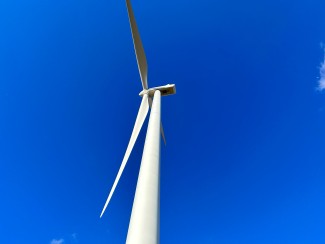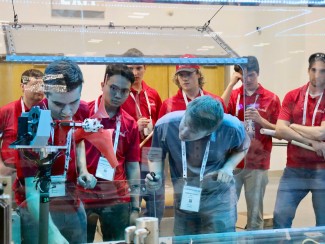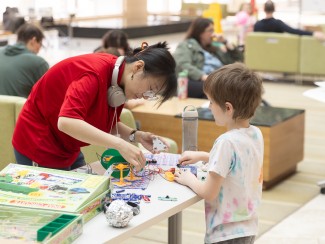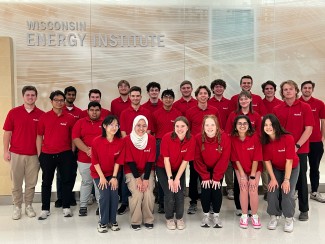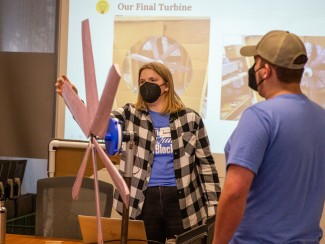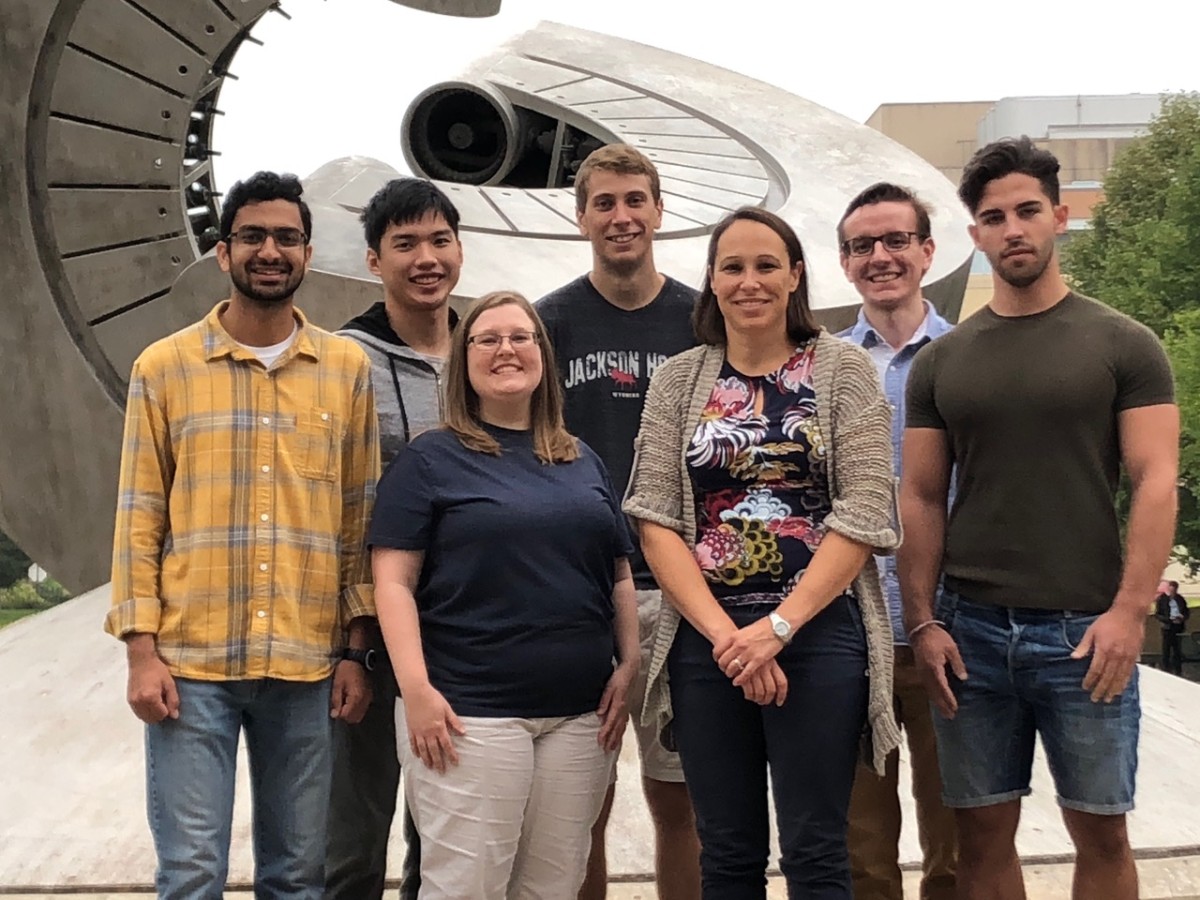
What is it like to stand on the shore of a lake or ocean on the perfect beach day? The flow of water slowly pulls the sand over your toes as the force of the tide floods coolness past your ankles. This movement of energy, fluid flow, exists in the water and the air all around us. Jennifer Franck, University of Wisconsin–Madison Assistant Professor of Engineering Physics, studies how these swirls happen, and how scientists are looking to harness it. We asked Franck about her path to a research career, and how energy systems could turn fluid flow into a source of renewable electricity.
Describe your research? What’s something you’re working on that you’re really excited about?
Fluid flows are everywhere! The thrust of my research has always been to investigate unsteady and turbulent flow of fluids using simulations and theory. At the moment, I am working on renewable energy technologies that extract energy from moving water – imagine a wind turbine underwater. Water has a huge potential for clean and renewable energy, but these technologies are not yet as widespread as wind energy or solar. I hope this will change in the next 10-20 years.
Are there any misconceptions people have about the work that you do, or is there a scientific concept related to your field that you wish people understood better?
One misconception is that you need to have a specific engineering degree or background to work in aerospace or renewable energy. However, these are very multidisciplinary fields! Throughout my projects, I am working day-by-day with civil, mechanical, electrical, and bioengineering students and professionals. Getting an engineering degree in any discipline will allow for you to make an impact in any field you are passionate about.
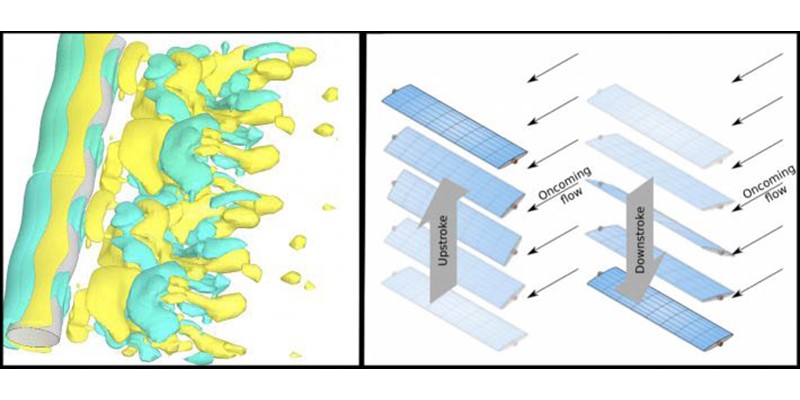
What are the long-term implications/applications of your research?
Renewable and clean energy! The marine renewable energy technology I am working on is in its basic research and prototype stages, much like wind turbines were approximately 20 years ago. It’s sometimes difficult to see the longer-term implications, but it’s very satisfying to know I’m doing a small part to help push forward sustainable energy solutions.
What did you study as an undergraduate student?
I was an aerospace engineering major at the University of Virginia (UVA). I chose UVA for their Aerospace Engineering program because airplanes always intrigued me. I was from Massachusetts, but UVA had a very good program, so I applied as an out-of-state student. However, I was relatively clueless about engineering in general (it was not love at first sight). I stuck with it, I loved the challenge, and I loved the scientific and logical methodology of dissecting a difficult problem and solving it. In particular, my favorite class in undergrad (and my best grade) was in ‘Fluid Mechanics’, which is still what I do every day in my research and teaching.
What brought you to UW-Madison?
I went from UVA to Caltech (Pasadena, CA) for graduate school since I had spent my entire life on the East Coast and I really wanted to live in California. I enjoyed my time there during my PhD, then moved back to the east coast for a job at Brown University, where I first started applying my expertise in fluids flows to renewable energy applications. I was at Brown University for 9 years before moving to UW-Madison in 2018. UW-Madison offers a larger and diverse engineering program, lots of opportunity for collaboration, and Madison is a great city for my husband and I to raise our 3 girls.
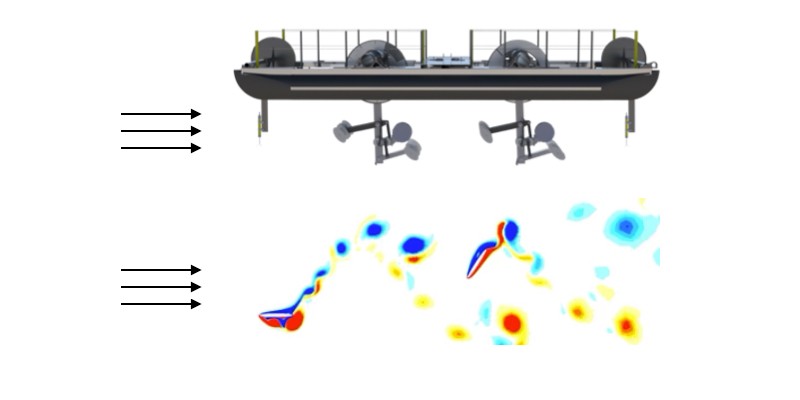
What would you say to someone in high school or college who is interested in your field of engineering, but is unsure of what steps to take in their academic career? What educational/professional opportunities have been most valuable for you to get where you are today?
My advice is to take the risk and try engineering! It has so many benefits in terms of marketability and versatility post-graduation. When I was an undergraduate, I was still very unsure of what engineering was, however I am so happy that I stuck with it. For those who are intimidated by pursuing an engineering degree, I admit it does have challenges in terms of its rigor and class load. Reaching out and becoming connected with the community of peers and faculty members, through clubs, volunteer opportunities, or research outside of class can provide the mentoring and sense of belonging that helps you get through. This took me a while to realize, but I did eventually find my groove, and having great people around me helped me succeed.
What are your interests and hobbies outside of science?
I have three girls who I spend almost all my time with outside of work. We enjoy spending time outdoors, and they are all very sporty like me. In winter you’ll find us skiing, ice skating, and building awesome snow forts. In the warmer months we spend a lot of time swimming, kayaking on the lake, or hiking with our dog.

